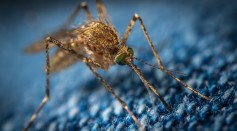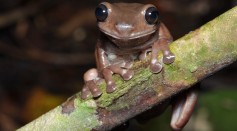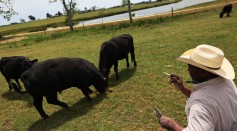Animals
Highly Venomous Caterpillar: Potential for Medicine, Pest Control [Study]

Over 50 Canines Tests Positive with Unexpected Flu Outbreak at Rescue Center

Wild Vulture Gets Titanium Bionic Leg Implants in a First-of-Its-Kind Surgery
Elephants' New Cousin, a Hyrax Species, Can Produce Bark-Like Sound Rather Than a Shriek Call

China Mourns Death of Pig That Survived 2008 Sichuan Earthquake
Wild Chimpanzee Orphans Can More Easily Overcome Stress from Loss of Their Mother, Study Shows
Deadly Virus Disease Found for the First Time in a Wild Rabbit, Oregon Wildlife Officials Confirm
Insect-Eating Mammals Diving Behavior Revealed in New Study

Crying Cub Trapped in India Tea Garden Trench Rescued, Reunites With Leopard Mom
Rotifer: This Microscopic Animal Comes Back to Life, Successfully Reproduces After Being Frozen for 24,000 Years
Deadly Stonefish: Scientists Unlock Mysteries Behind This Toxic Fish's Venom

Mosquito Facts: Why They Buzz on People's Ear

New Species of Frog Discovered in New Guinea, Features Look Like Chocolate Miniature

High-Tech Earrings for Cows Provide Traceability That Increases Herd Value
Most Popular

AI Revolution in Medical Education: Transforming How Healthcare Professionals Learn

Optimizing Complex Catalog Systems with Graph Theory and Indexing

Out of Office, Not Out of Mind: Planning for Employee Holiday Absences

Exploring Life Beyond Earth: Study Claims Other Planets Could Be Suitable for Alien Life





